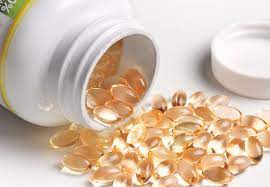Whole food supplements is currently a topic of worldwide interest. A profusion of evidence has recently come to light suggesting that ordinary synthetic multivitamin supplements may be hazardous to your health. Goran Bjelakovic, a respected scientist from the University of Copenhagen, headed up a massive meta-study that looked at the results of 67 placebo-controlled trials previously undertaken to determine the effects of vitamin and anti-oxidant supplements on longevity. In the end, the study combined observations of 232 000 test subjects. By using such a large population sample, a study can become much more powerful with regards to spotting large-scale trends and overcoming human bias.
The results of the analysis, published in the Journal of the American Medical Association, were nothing less than shocking. Looking at patients with diabetes, heart disease and lung cancer, as well as healthy, normal individuals, there was no apparent benefit to taking popular fractionated supplements like Vitamin A, Vitamin E, Vitamin C, Selenium, or beta-Carotene. In fact, the results went in the opposite direction – there was an increased chance of death (16 percent) amongst Vitamin A users, a 7 percent higher death rate amongst beta-Carotene users, and a 4 percent mortality increase in Vitamin E users. Beta-Carotene and Retinol, promoted as anti-carcinogenic agents, may promote lung cancer. That’s right – pills marketed as helping you towards a longer, healthier life are in fact correlated with a speedier demise. This study used typical supplements on the market made from synthetic vitamins.
To add insult to injury, a recent study published in the British Journal of Nutrition under the unimaginative title of “Ascorbic Acid Supplementation Does Not Attenuate Post-Exercise Muscle Soreness Following Muscle-Damaging Exercise But May Delay The Recovery Process” indicated that supplementation with anti-oxidants from synthetic sources may reverse many of the beneficial effects of physical training.
Now, this is not to say that anti-oxidants or vitamins are bad for you. Far from it – these supplements were created on the basis of solid science. Anti-oxidants are still believed to protect cells from the ravages of free radicals. The problem, rather, is the idea that you can get those benefits from synthetic isolated compounds. Disease and the aging process are usually far more complicated than test-tube studies can account for. Furthermore, the issue of bioavailability is an ever-present concern. Many typical synthetic supplements include huge amounts of the advertised vitamin, but lack the additional compounds needed to ensure that their key ingredients are actually absorbed by the body. Passing straight through the digestive tract, these ‘miracle health cures’ often wind up doing little beyond giving people expensive urine. To the rescue…Whole Food Supplements.
What the layperson should take from all this is not a sense that we’ve made no progress in the last century regarding uncovering adequate means of personal health maintenance. There’s one thing that nobody is disputing, and that’s the importance of a healthy, well-rounded diet replete in fruit, orange, yellow and dark green leafy vegetables, whole grains, legumes, seeds, nuts, high quality carbohydrates and lean proteins and supplementation from whole food supplements. . When you avoid taking in harmful chemicals such as those in food preservatives, flavorings, flavor enhancers and ‘synthetic vitamin additives’, you’ll not only reduce your intake of toxins. You’ll also be forced to tap into the most nutritionally reliable source available, namely natural nutrition. Human beings have evolved to consume unprocessed plant and animal food sources. Recent research suggests that the superiority of natural ratios and formulations has been massively undervalued.
Whole food supplements are foods that haven’t been processed or refined, or have undergone as little processing as possible for preservation or human consumption. Much as is the case with organic food, whole food supplements call for the avoidance of chemically assisted agriculture. The concept is one of a minimization of human interference with the processes of nature. This is based on the guiding principle that nature’s products make for healthier products than the products of human industry.
While this is a claim met by much resistance from the refined food and pharmaceutical industries, it’s being repeatedly borne out by the results of research. A study of women shifted from a diet high in processed foods to one replete with whole foods and whole food supplements resulted in a 61% decrease in saturated fat intake. They also experienced increases in dietary fiber of 60 percent, a 45 percent increase in vitamin E, a 60 percent improvement in vitamin C intake, and a five-fold increase in carotene intake. The net result of this new phytochemical-rich diet was an induced drop in total cholesterol of 13 percent – meaning less risk of heart disease and stroke, statistically still the biggest killers of people in first world countries. In the short term, they also saw vast improvements in bowel function and overall perceived health. Clearly whole food supplements are preferable to typical synthetic supplementation.


